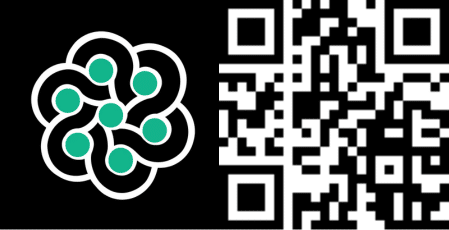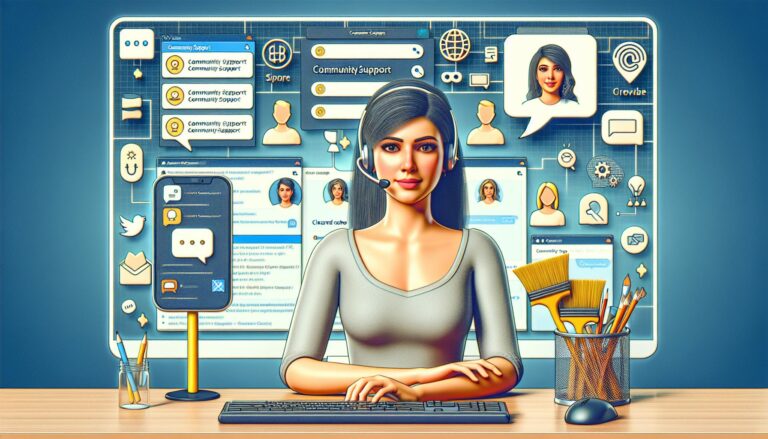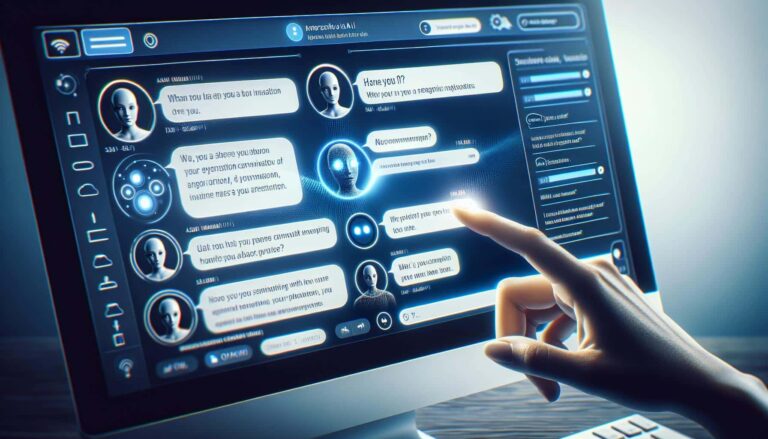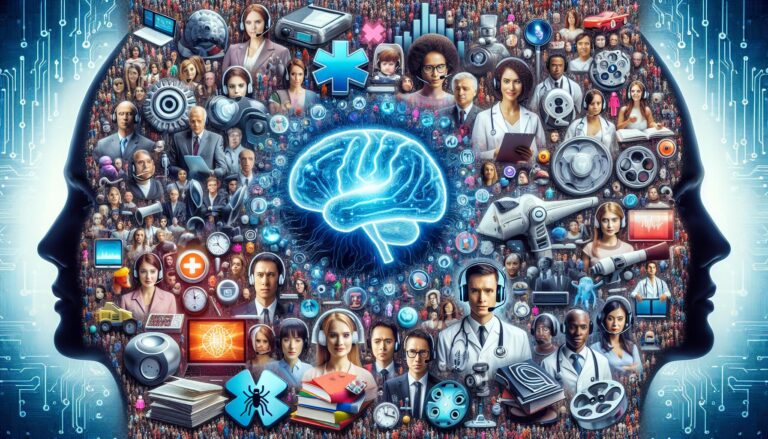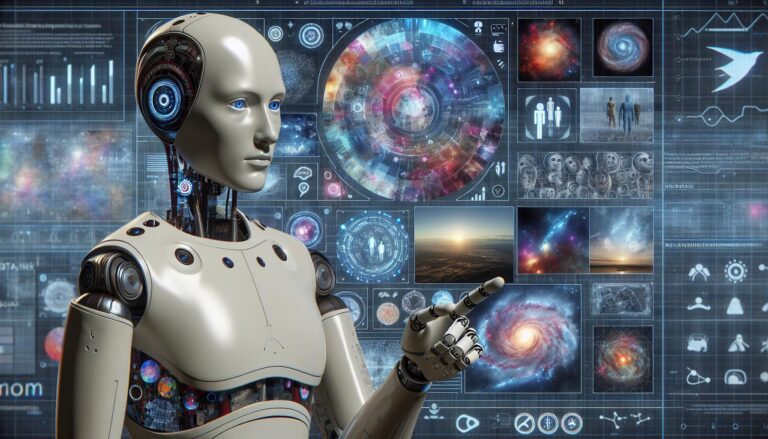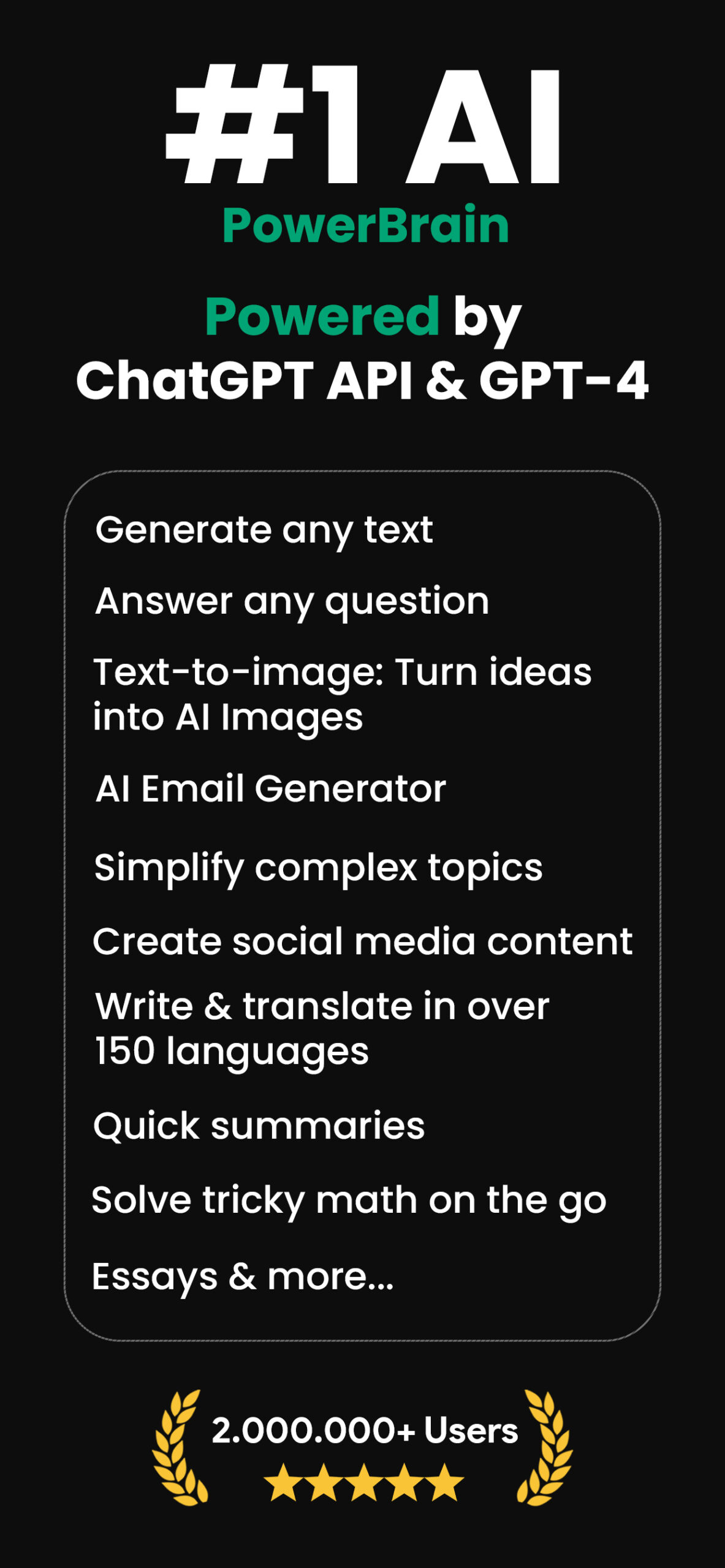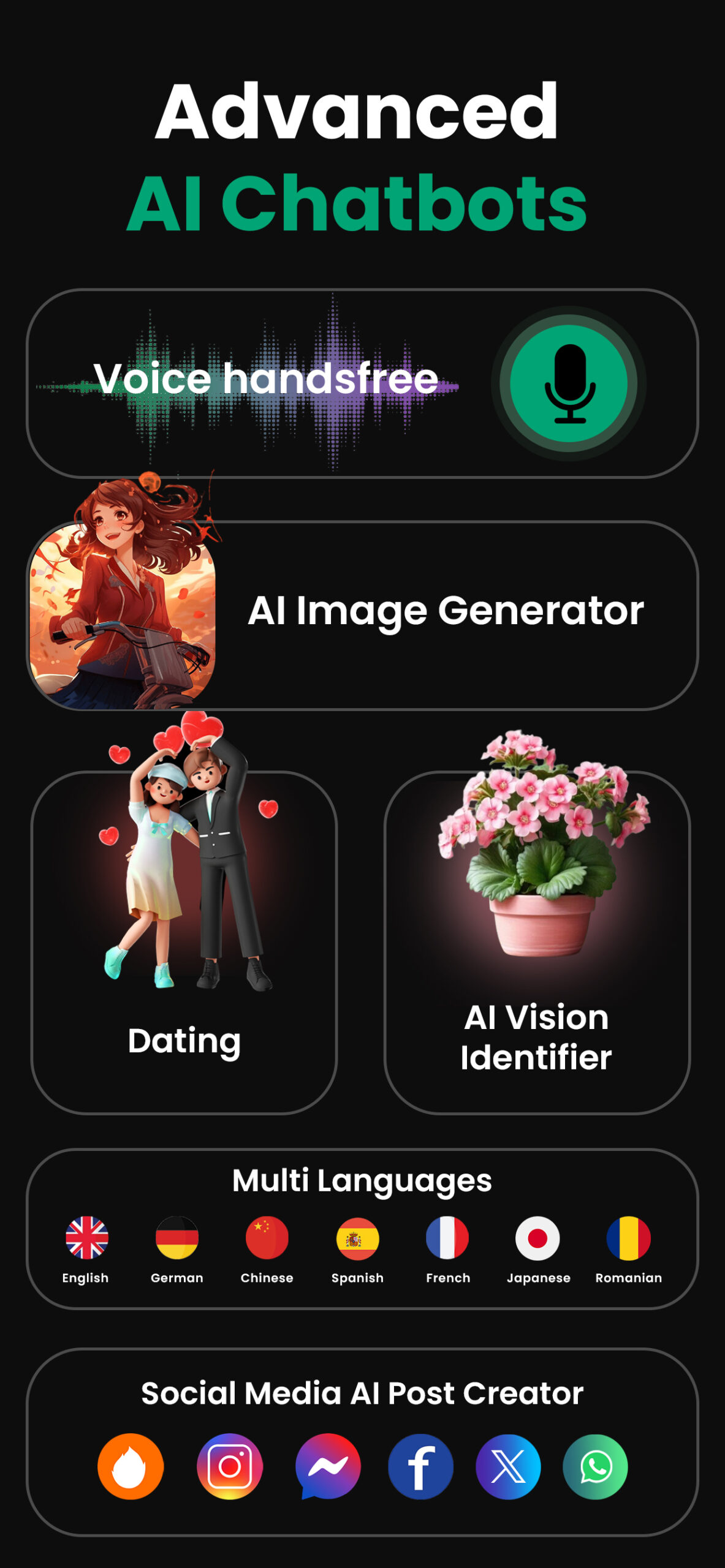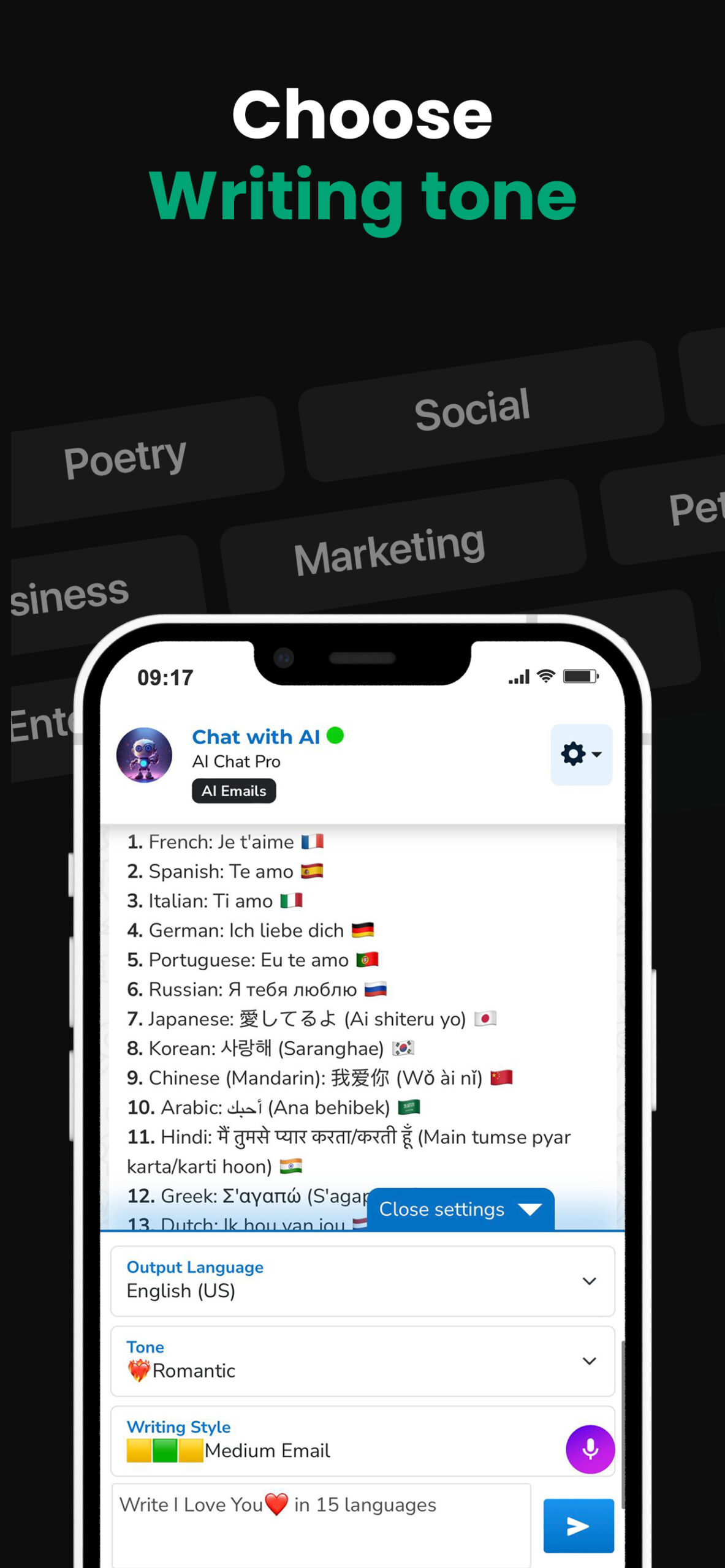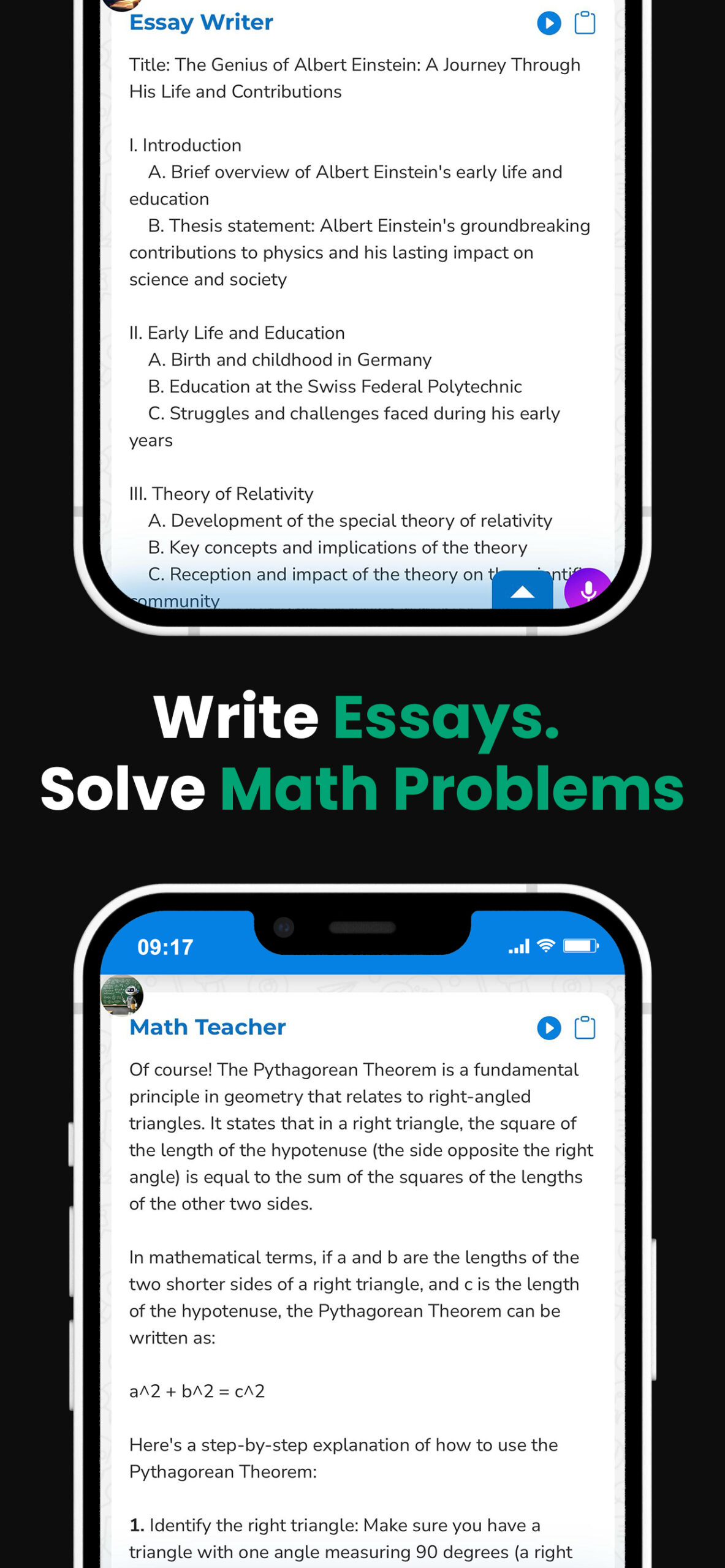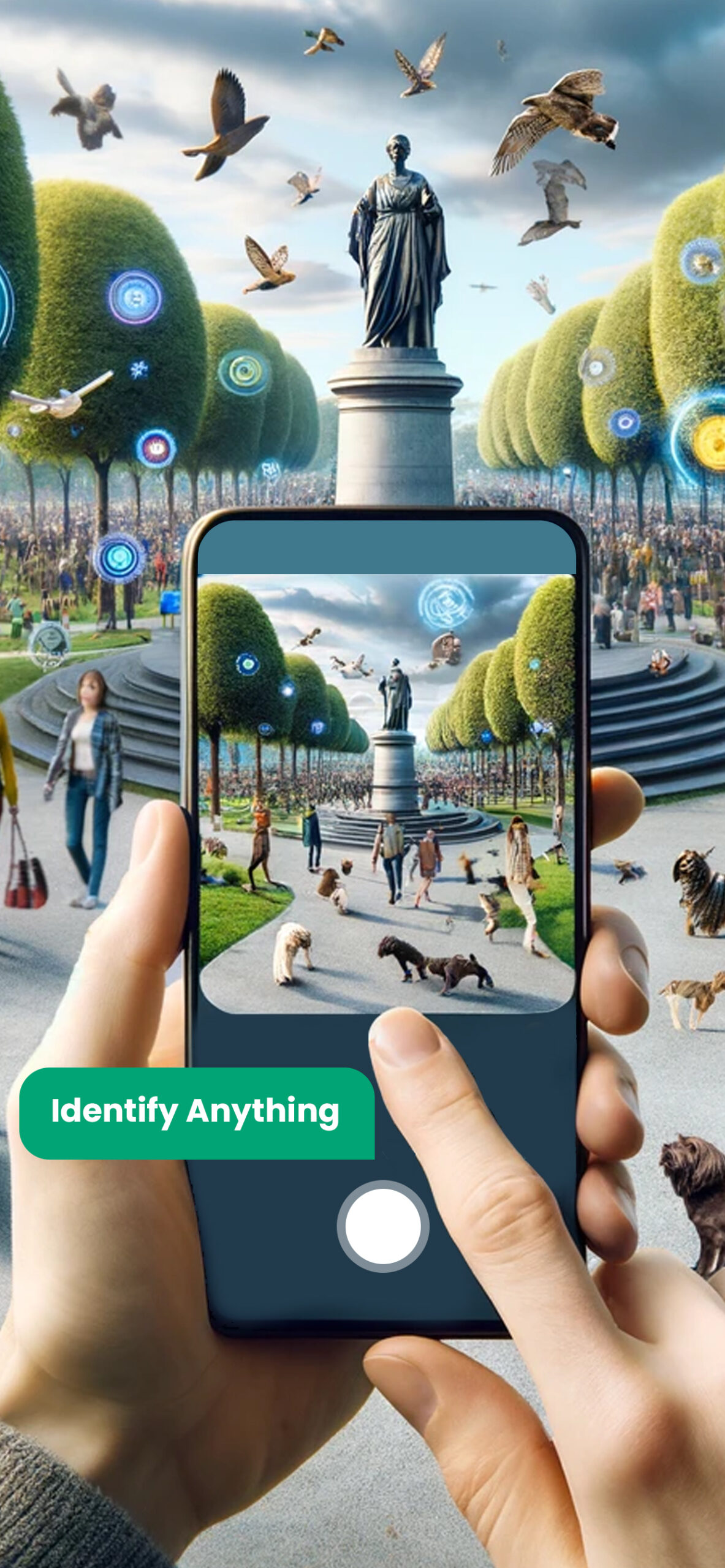Exploring the Intersection of ChatGPT & Sexuality: An AI Ethics Perspective
In the ever-evolving world of AI, there’s a new player in town – ChatGPT. It’s a language model that’s been making waves for its ability to generate human-like text. Now, a rather controversial topic is the use of ChatGPT for sexual content, something that’s been stirring up quite the discussion.
As an AI enthusiast, I’ve been keeping an eye on the developments. It’s a fascinating yet complex issue with many angles to consider, from ethical concerns to potential implications for our society. This topic warrants a deep dive.
So let’s delve into the world of ‘ChatGPT Sex,’ exploring the good, the bad, and the downright controversial. Get ready for an enlightening journey into the heart of AI’s latest frontier.
PowerBrain AI Chat App powered by ChatGPT & GPT-4
Download iOS: AI Chat Powered by ChatGPT
Download Android: AI Chat Powered by ChatGPT
Read more on our post about ChatGPT Apps & AI Chat
Key Takeaways
- Discussion around ChatGPT for sexual content brings forward ethical concerns such as privacy, age verification, consent, and societal implications.
- Privacy in using ChatGPT for explicit content is a significant concern due to the potential for misuse and a lack of clarity in legal boundaries.
- Issues around age verification pose risks for minors being exposed to adult content, necessitating stronger verification measures.
- The question of AI’s ability to give or withhold consent, despite seeming peculiar, is a point of consideration in the conversation around ChatGPT for sexual scenarios.
- There can be societal impacts, such as reinforcing harmful stereotypes and potential implications on mental health arising from the use of sexual content in AI.
- Understanding and discussing potential risks surrounding issues like privacy, age verification, and misuse of AI technologies paves the way for an ethically responsible use of such transformative technologies.
- Balancing user freedom with moral responsibility entails that the AI community establish safeguards to prevent misuse and promote responsible AI practices.
- Looking into the future, despite the potential challenges, technology like ChatGPT, if correctly utilized, can facilitate meaningful discussions and promote a healthy attitude towards sexuality.
Ethics of Using ChatGPT for Sexual Content
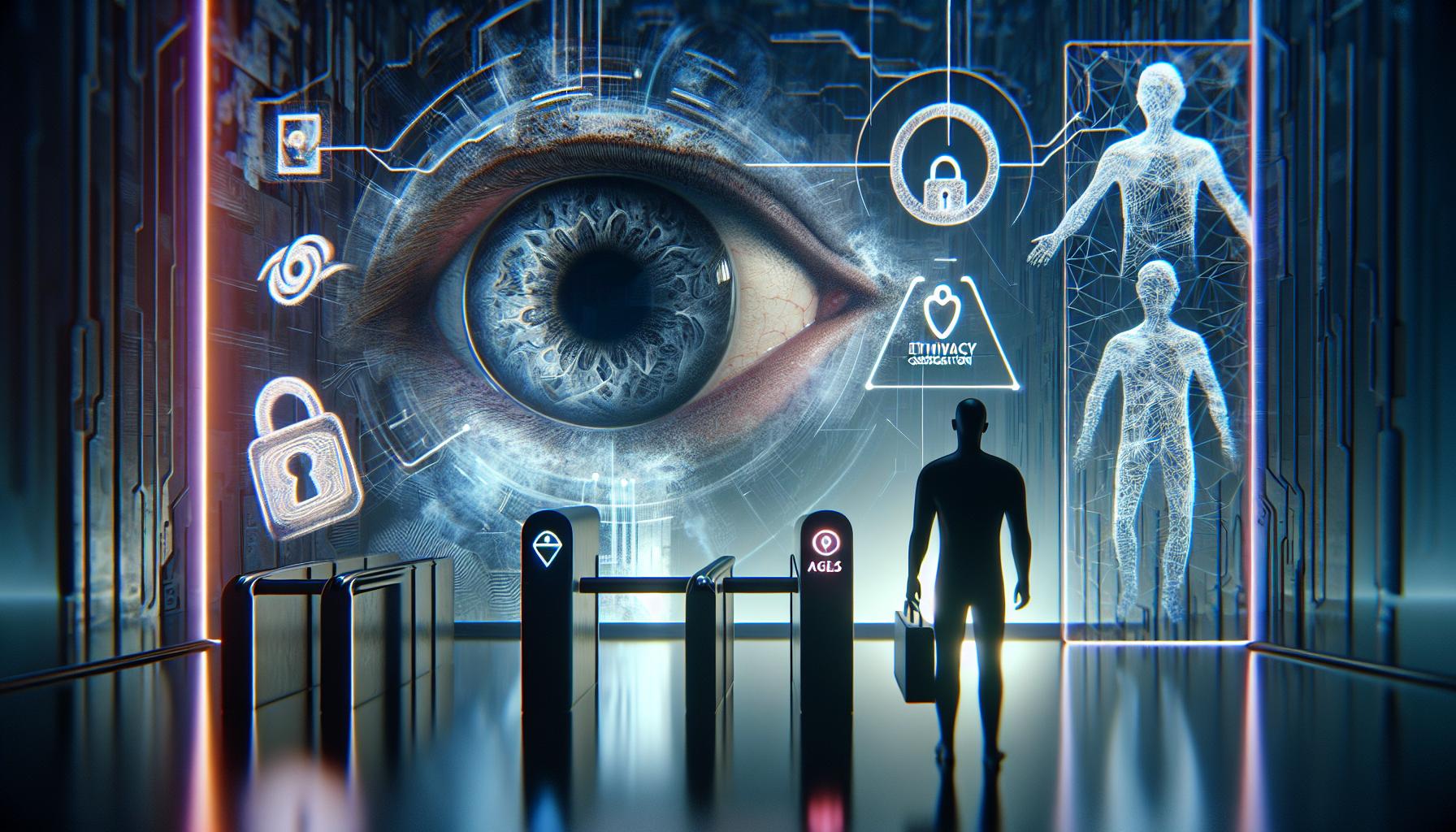
Discussing the ethics of utilizing ChatGPT for sexual content raises a plethora of concerns. This subject is not simple, and I believe it’s crucial to tackle it with as much thought and sensitivity as possible. So, let’s dive right into the heart of the matter.
Foremost, privacy is a primary concern. How can we ensure that intimate dialogues remain confidential and don’t generate potential for misuse? ChatGTP, like any AI model, learns from vast datasets. The risk, however slight, of our personal interactions seeping into the learning process, cannot be entirely ruled out. Plus, there’s the legal boundaries to consider. Legislation regarding privacy and AI use is still developing. It’s quite possible for users to land themselves in murky waters unintentionally.
Secondly, there’s the question of age verification. Despite existing security measures, it’s difficult to ascertain a user’s age in the digital space effectively. An AI model with potentially explicit content can be readily accessed by underage users, which is problematic. This is particularly worrisome in regions where legislation does not clearly define the boundaries for AI and explicit content.
Read more
is it plagiarism to use ChatGPT?
ChatGPT is at capacity
Chat GPT no restrictions
Connect Chat GPT to internet
Chat GPT no login
xChatGPT
Next, we have the consent issue. When engaging with AI like ChatGPT in a sexual context, one might question: Does the AI have the capability or rights to give or withhold consent? This might seem ludicrous at a glance, but this isn’t a question we can afford to ignore in our rapidly evolving AI landscape.
Finally, the ethical question of how sexual content in AI impacts broad societal issues should not be overlooked. From reinforcing harmful stereotypes to having potential implications on mental health – the societal impacts cannot be underestimated.
In examining these issues, it’s clear that the ethical terrain we tread is decidedly precarious. As we continue navigating this frontier, it’s certain: the dialogue on ChatGPT Sex won’t be dying down anytime soon.
Risks and Concerns Associated with ChatGPT Sex
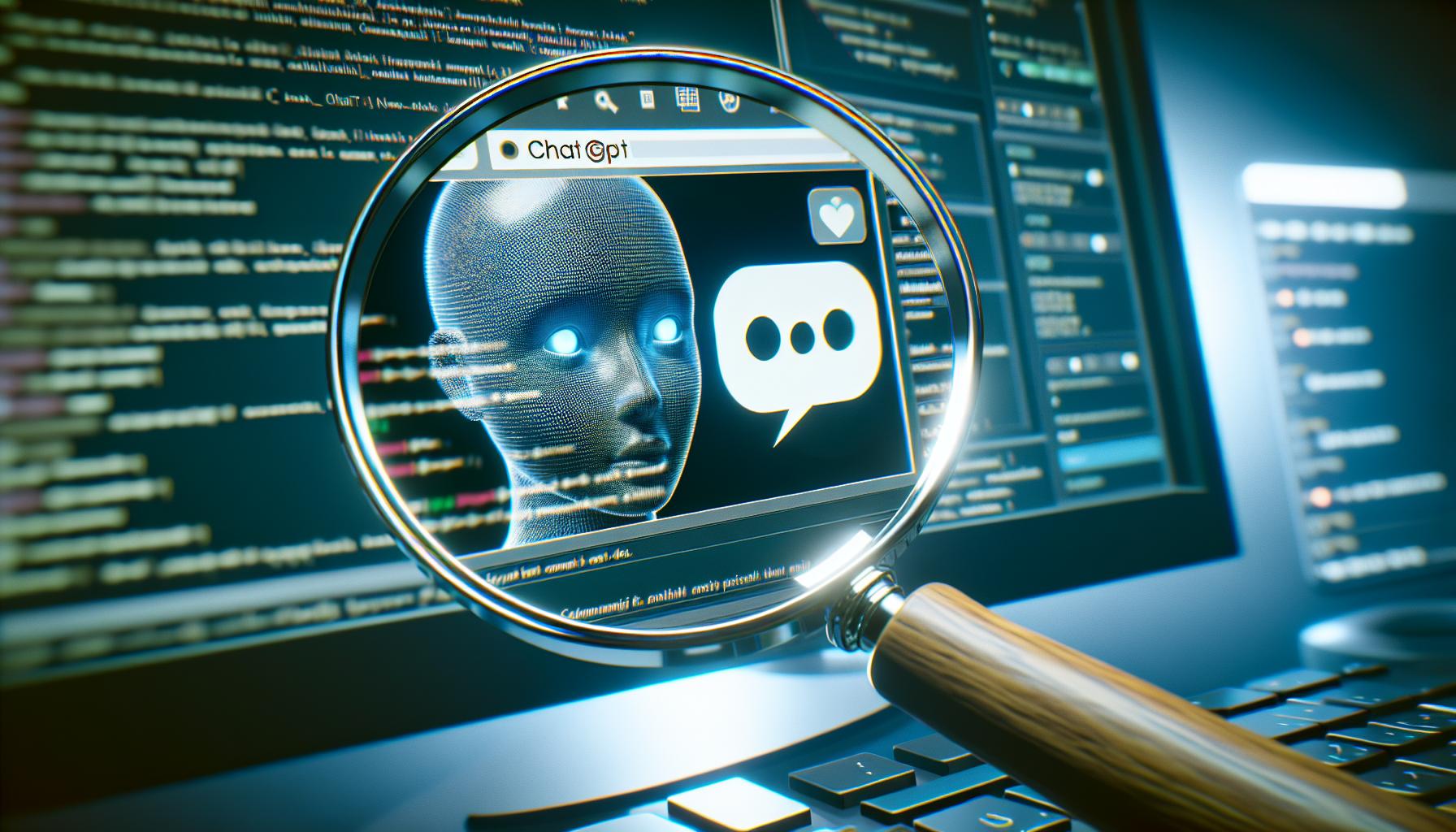
A significant issue looming in the ChatGPT discussions circles around privacy concerns. With AI technologies like ChatGPT diving into intimate conversations, it’s only logical to question where the boundaries lie. Let’s not forget that these tech platforms collect and analyze user data, potentially including sensitive and private exchanges. This area is particularly gray for AI technologies as the data governance, encryption, and rights management mechanisms are often opaque.
Then, we must not overlook the issue of age verification. At present, AI platforms can’t adequately validate the age of their users, making a potential risk for underage individuals be exposed to adult content. It’s an ethically challenging issue that the industry must address, considering the complexity of global age consent laws.
Lack of genuine consent adds another layer to the discussion, given that an AI does not have the capacity to provide informed consent. Interactions involving sexual content, therefore, raise questions about the nature of consent in the context of AI interactions and its ethical implications.
Finally, we must also consider the societal impacts. There is the potential for misuse of these AI models in ways that could promote unhealthy behaviors or attitudes towards sex and consent, further perpetuating societal issues and norms. This reinforces the need for continued thoughtful, sensitive discussions on these complex issues as the dialogue continues to evolve in the AI community.
Every technology has its potential risks, and it’s crucial that we recognize and discuss these openly. Only through understanding these issues can we hope to forge a path towards an ethically responsible use of such powerful and transformative technologies. The dialogue on ‘ChatGPT Sex’ is far from over, and it is paramount that we continue to engage critically with this topic.
Societal Implications of ChatGPT in Sexual Scenarios
Diving deep into the societal implications, we find that ChatGPT sex carries a profound effect on our societal dynamics. It’s a double-edged sword that can enhance personal comfort and privacy but might also fuel undesirable behaviors if not monitored properly.
Firstly, people often choose to interact with AI like ChatGPT for sexual content due to the anonymity it offers. Unlike human interactions, no fear of judgment, shame, or stigma is attached. This comfort can be empowering for some, providing a safe space for exploring their sexuality.
However, as with all technological advancements, there’s a darker side. Artificial interaction lacks the emotional intelligence and empathy found in human relationships. By enabling AI for sexual content, we could be fostering a culture of reduced human contact and intensified isolation.
Perhaps a more worrying aspect is the potential encouragement of unrealistic sexual expectations. ChatGPT, as an artificial entity, will not tire or reject advances, a factor that could translate into false perceptions about real human relationships. If these misperceptions grow, they could affect interpersonal relationships as well as general societal norms.
Misuse is another significant concern. Without stringent control mechanisms, there’s a chance that AI can be used to simulate non-consensual scenarios or promote unhealthy behaviors.
From a broader perspective, the use of AI for sexual scenarios opens up a Pandora’s box of legal and moral questions. In a society where the definition of consent is still evolving, the incorporation of AI in sexual content adds layers of complexity.
It’s evident that ethical considerations and discussions surrounding these societal impacts are crucial and ongoing within the AI community, driving a need for accountability. While the dialogue continues, it’s important to remember that AI is here to serve humanity, not to manipulate or distort our societal values.
Balancing Freedom of Expression and Responsible AI Usage
In this digital age, a thin line needs to be maintained between freedom of expression and responsible technology usage. This line is even more blurred when we talk about AI interactions, especially chatbots like ChatGPT. These chatbots, while providing a platform for individuals to explore their sexuality, also intensify the responsibility of tech creators in dictating and overseeing their use.
ChatGPT and other similar AI models offer users a means to express themselves without fear of judgment. In some ways, this can be empowering for many who may be struggling with societal taboos or personal insecurities related to their sexual orientation and desires. However, this freedom can also become a gateway to potentially harmful behavior, especially when it involves scenarios that veer towards the non-consensual or exploitative.
Understanding this, maintaining accountability in the AI community is paramount. It’s not just about creating a tool that enables expression but also about ensuring that this tool isn’t misused. Tech creators and stakeholders need to engage in responsible AI practices such as active moderation and setting up safeguards to prevent misuse.
Just as there’s an emphasis on creating AIs that can mimic emotional intelligence, there should also be an emphasis on teaching and ingraining these AIs with a sense of moral code. It may sound a little sci-fi, but it’s worth remembering that AIs are created and taught by humans. As such, they somewhat capture and imitate our values, our ethics, and our principles.
Moving forward, an ethics-first approach should provide the backbone of AI development, particularly for AI like ChatGPT, which handles topics as sensitive as sexuality. Balancing user freedom with moral responsibility is not easy, but it’s a necessary challenge. There’s no one-size-fits-all solution, and it’s sure to involve a series of trials and errors, ongoing ethical discussions, and continuous learning. Yet it’s a responsibility we must bear as the AI community. Even as we strive for technical advancement, we must also uphold the values that make us human.
Exploring the Future of ChatGPT in Relation to Sexual Content

Diving into the future of AI like ChatGPT, particularly concerning sexual content, is fascinating yet complex. It’s a space that requires both technical ingenuity and a deep understanding of the significant ethical and societal implications at play.
One of the most crucial aspects is how beautifully ChatGPT can facilitate open dialogue about sexuality. This technology doesn’t pass judgment or biases; it purely aids expression and communication. However, it’s important to understand that this freedom isn’t without risks or challenges.
Harmful and non-consensual scenarios are a considerable concern. Though AI doesn’t have intentions or motives, it can still mimic or facilitate negative behaviors if not appropriately monitored and guided. And here lies the responsibility of AI tech creators and users.
Accountability in AI usage shouldn’t be taken lightly. There’s a need to imbue AI models with moral codes that reflect our societal values. These moral parameters need to be dynamic and adaptable, allowing space for growth and learning, particularly in sensitive areas like sexuality. There’s no one-size-fits-all solution in this evolving tech landscape, but an ethics-first approach seems promising.
As we move forward in this brave, new AI world, the road might be rough and uncharted, particularly regarding sexual content. But it’s an integral part of humanity and society, and aligning AI advancement with our shared values, norms, and ethics is the way to walk this path. If done right, technology like ChatGPT has immense potential to facilitate meaningful discussions, challenge stigmas, and promote a healthy attitude towards sexuality in a non-judgmental and safe environment.
But remember, this is still an ongoing learning process. We should take every step with a mindful eye on the broader implications, balancing user freedom with moral responsibility. After all, technology is a tool, and its impact largely depends on how we wield it.
Conclusion
It’s clear that ChatGPT’s potential in broaching sexual content is vast. It can open doors to healthy, stigma-free discussions about sexuality. At the same time, it’s vital we don’t forget the importance of monitoring and accountability in AI. We need to ensure our technology reflects our societal values and moral codes. As we move forward, an ethics-first approach will be key. It’s a delicate balance, but one we’re learning to navigate. The journey to align AI advancements with ethical considerations is ongoing. But with the right approach, we can use technology like ChatGPT to challenge stigmas and foster healthier conversations about sexuality. It’s an exciting future, and I’m eager to see where it leads.
What is the article about?
The article discusses the future of AI, especially ChatGPT, its potential to facilitate discussions about sexuality, the need for monitoring to avoid harmful situations, and the importance of implementing ethical codes into AI models.
How does the article suggest addressing discussions about sexuality using AI?
The article suggests using AI like ChatGPT to encourage open discussions about sexuality. It emphasizes that these conversations must be carefully monitored to prevent non-consensual scenarios or harm.
What does ‘accountability in AI usage’ mean?
The phrase means ensuring that AI use aligns with moral and societal norms. It necessitates safeguards to avoid misuse or potential harm, and it advocates for the integration of societal values into AI models.
Why is an ethics-first approach recommended?
An ethics-first approach is recommended to balance user freedom with moral responsibility carefully. In sensitive areas like sexuality, it’s critical to consider ethical guidelines to navigate the complexities.
What is the overall message of the article?
The article highlights the need for continuous learning to ensure AI advancements align with ethical considerations and societal norms. It underlines the potential of AI in fostering healthy, non-judgmental discussions around sexuality and challenging existing stigmas in a safe way.
